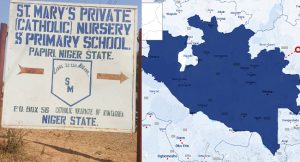Air Peace aircraft | File Image
By Valentine Obienyem
Now that it has been established beyond dispute that Air Peace paid one hundred million naira (N100 million) for land in Anambra State – land intended for the construction of aviation facilities of billions of Naira that would have advanced commerce, aviation, and employment in the region – and was yet treated unfairly, we are compelled to ask: What does this reveal about the character of the governor, who held office in August 2021, when the payment was made.
I do not want to mention names; I believe we should simply focus on the issues.
Was he, perhaps, denied a personal stake in the venture and, in resentment, withdrew his hand of approval? Or was it yet another symptom of that tragic season in a state’s life when governance descends into pettiness and public interest is sacrificed on the altar of ego?
Whatever the cause, the consequence remains unchanged — the betrayal of public trust and the paralysis of collective progress.
I am sure Air Peace must be saying to himself, “I wish it had been under Obi.” Other industrialists may have told him – with cheeks bursting with pride – how Mr. Peter Obi treated them.
Which industry in Anambra did Obi not visit and support – at least by constructing access roads to their locations, bringing President Goodluck Jonathan to personally commission their facilities, purchasing their products, and even marketing them himself?
Also read: Air Peace partners Boeing, Cranfield University to drive safety excellence in aviation
I remember how he personally traversed the bushes of the state while seeking land for some of the investors who came during his tenure.
If I were the Governor, I would seek out Air Peace with apologies, refund the money, and demonstrate my renewed commitment by granting the company land twice the size of what was previously denied.
I would then appeal to them to expand their operations within the state. It is not too late.
Many Anambra people are unaware of what Air Peace is quietly doing for the state.
Have you not noticed that Anambra now has more pilots than any other state in the country, and that thousands of its indigenes are employed by the airline – without noise or “Dorime?”
In enlightened societies, governments court investors with open arms, offering incentives, waivers, and even tax holidays, knowing that the prosperity of industry is the prosperity of the state.
Here, however, we too often convert opportunity into hunt for personal gain.
We repel those whose enterprise might have lifted thousands, and in so doing, condemn ourselves to perpetual underdevelopment.
One must therefore ask: To whom was that same parcel of land later allocated? Should it not be revoked now, as a gesture of remorse and a lesson from a state mourning a lost opportunity?
This is no isolated case. The same shortsightedness – allocate to me my own share mentality – drove International Breweries to abandon Anambra for Shagamu, despite having been granted land by the banks of the Omambala River.
Distell, too, fled Ozubulu after preparatory works, and the land they left behind found its way into private hands.
Likewise, Neimeth Pharmaceuticals withdrew from their planned facility in Amawbia, though a ground-breaking ceremony had already been held with fanfare and official optimism.
The Managing Director of Emzor Pharmaceuticals is still pained that she could not secure their ongoing massive expansion in Anambra rather than in Shagamu.
Like Air Peace, the full story will one day be told.
If the Juhel facility had not come up during Obi’s tenure, perhaps, it too would have been in Shagamu by now.
Each of these episodes is not merely a missed investment; it is a small tragedy in the chronicle of a people struggling against themselves.
For when enterprise departs, development recedes.
When ambition is thwarted by envy, or public duty is subdued by private greed, the spirit of progress falters.
Let it be said plainly: Governance is the art of sensing opportunity for the governed and utilizing it.
It is not about drinking oneself to stupor as a routine ritual. It is a trust held on behalf of the unborn.
Unless those in power learn this eternal truth, Anambra – rich in talent but poor in foresight – will continue to watch opportunity sail away while others reap the harvest of her abandoned promise.
.Obienyem, a lawyer and public affairs analyst, writes from Awka, Anambra State.
……………….
For more interesting articles, click: nigerianewsflight.com.ng
valoa2000@yahoo.com












